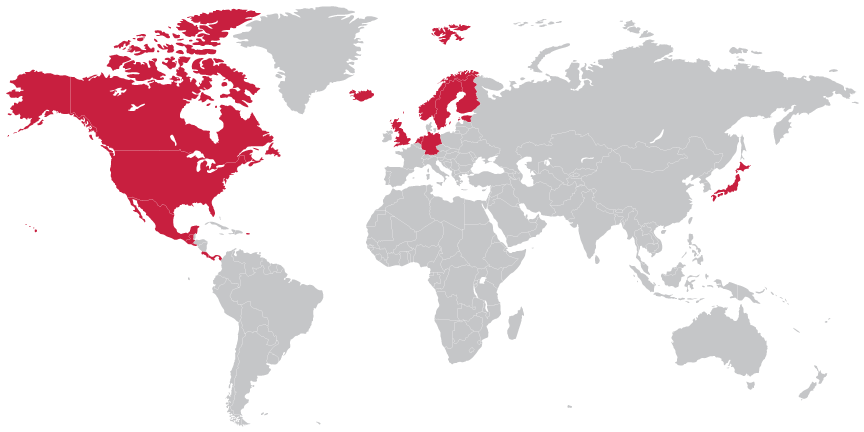Organizational structure
The Society is structured in three levels—local, state organization and international—all closely integrated. The local unit is called a chapter. The term “state organization” designates states, territories, provinces and comparable political divisions in countries where Delta Kappa Gamma is organized. The terms “international” and/or “Society” refer to the overall organization with the total membership. The business of the Society is conducted by the organizations on these three levels and through the relationships among them.
State organizations are grouped by regions as designated by the International Executive Board. The five regions include the following:
Europe—Estonia, Finland, Germany, Great Britain, Iceland, The Netherlands, Norway, Sweden
Northeast—Connecticut, Delaware, District of Columbia, Illinois, Indiana, Maine, Maryland, Massachusetts, Michigan, New Brunswick, New Hampshire, New Jersey, New York, Ohio, Ontario, Pennsylvania, Puerto Rico, Quebec, Rhode Island, Vermont, West Virginia
Northwest—Alaska, Alberta, British Columbia, Idaho, Iowa, Manitoba, Minnesota, Montana, Nebraska, North Dakota, Oregon, Saskatchewan, South Dakota, Washington, Wisconsin, Wyoming
Southeast—Alabama, Arkansas, Florida, Georgia, Kentucky, Louisiana, Mississippi, North Carolina, South Carolina, Tennessee, Virginia
Southwest—Arizona, Baja California, California, Colorado, Costa Rica, El Salvador, Guatemala, Hawaii, Jalisco, Japan, Kansas, Mexico D. F., Missouri, Nevada, New Mexico, Nuevo Leon, Oklahoma, Panama, Puebla, Texas, Utah.
Member Countries:

United States
Canada
Norway
Sweden
Mexico
Finland
Guatemala
Iceland
The Netherlands
Puerto Rico
Great Britain
El Salvador
Costa Rica
Germany
Estonia
Panama
Japan